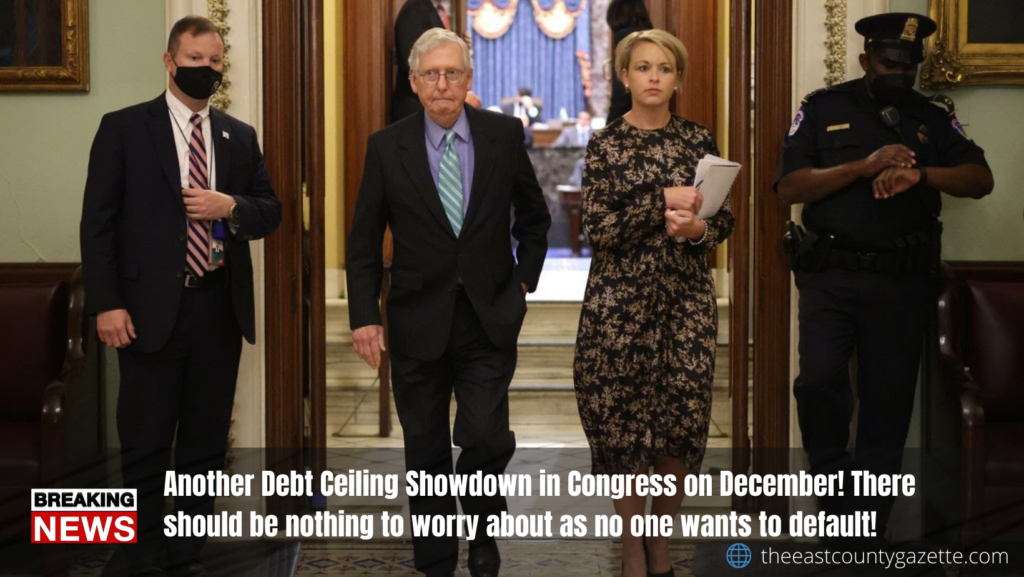Congress has barely avoided a default this month with Republicans and Democrats striking a deal to extend the debt limit in what will amount to a two-month truce.
The deal is all about setting up another showdown over the nation’s ability to repay its bills in early December, a battle that will be coupled with government funding.
It threatens to jam Democrats as they labor to get President Joe Biden’s economic agenda across the finish line, relying on their reed-thin majorities.
Yet the odds are better than not that the US will continue averting a default that experts warn would cut Social Security payments, roil financial markets, and jeopardize the global economy.
Despite the intense political posturing, events from the past two weeks underscored one thing: Neither Republicans nor Democrats want to see the nation plunged into a fresh economic crisis.
Recommended Read: Senate Approves Bill to Raise Debt Ceiling Through Early December
“The debt limit is going to be raised,” Sen. Mitt Romney of Utah told Insider earlier in the week. “Republicans want it raised. Democrats want it raised.”
“There’s never been any danger that the US is going to default on its debt,” Sen. Pat Toomey of Pennsylvania told Insider at the same time.
Treasury Secretary Janet Yellen has warned that her department is likely to exhaust its cash-conservation measures by Oct. 18 if Congress doesn’t act, saying Wednesday at a White House meeting that the country is “staring into a catastrophe.”
Ms. Yellen spoke with House Speaker Nancy Pelosi (D., Calif.) and Mr. Hoyer, telling them that “if the House fails to act next week, the country will be unable to pay its bills,” Mr. Hoyer said in a statement.
Recommended Read: Social Security: You Won’t Receive Your Payment If Debt Ceiling Not Raised
The debt ceiling doesn’t authorize new spending but allows the Treasury to raise money to pay for expenses the government has previously authorized.
A Treasury spokesperson said that the Dec. 3 projected date assumes the Treasury will already have used all the available extraordinary measures at that point.
But Goldman Sachs said in a note that the $480 billion amount “is higher than we would have anticipated the Treasury would need to get to that date, so there appears to be a good chance that the actual deadline for the next increase will come somewhat later than Dec. 3,” though likely not past the end of the year.

